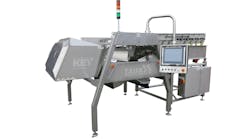According to new research, 72 percent of senior corporate leaders rate their quality programs as world class — the strongest in the world. In contrast, only 40 percent of midlevel, quality-focused respondents view their programs as world class or advanced. To add still more contrast, 60 percent of quality-focused respondents rank their quality program as average or below average.
In Europe and Asia, about 50 percent of respondents say their organizations have clear quality visions and values, according to the research.
This disparity is likely due to “filtered, big-picture material that has been ‘prettied up’ for management,” according to Elizabeth Keim, a managing partner at Integrated Quality Resources, and advisor on a research report titled “Culture of Quality: Accelerating Growth and Performance in the Enterprise.” The study, from ASQ and Forbes Insights, includes data from organizations like Samsung, FedEx, and Tata and provides insight into how a quality-driven culture can accelerate business performance.
The research draws on the responses of 1,010 senior leaders and 1,281 quality professionals worldwide from a multitude of industries. The survey was conducted online in April.
“I think the deeper you dive into an organization’s chart, the closer those people are to the detail of what is happening,” according to Dan Afseth, software development leader at Intuit and project advisor. “If you’re close to the challenge, you see the precise changes still needing to be made; whereas from the top, you see great progress.”
Other findings include:
-
59 percent of respondents say their organization has a comprehensive, groupwide culture of quality.
-
48 percent say customer needs are the key driver of their quality programs.
-
24 percent of respondents strongly agree that they actively involve customers in quality discussions.
- 53 percent say their organization plans to increase investment in quality programs in the next 18 months.
“In order to be effective, a culture of quality must permeate an entire organization,” said ASQ Chair Stephen Hacker. “This research provides first-hand and real-world examples from industry leaders of how to strengthen and sustain a high-impact quality culture — which can have dramatic and positive effects on an organization’s bottom line.”





